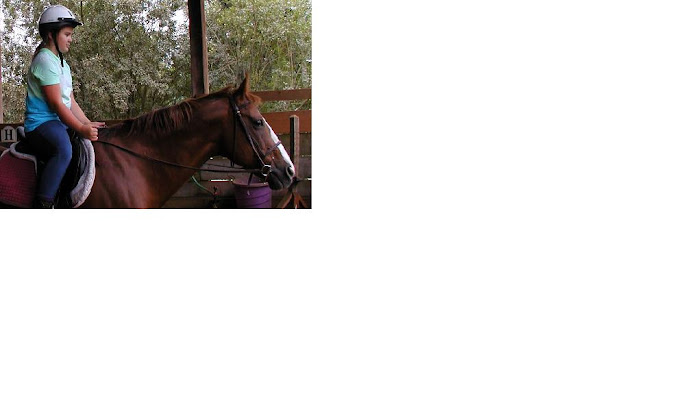When you pull into the Cactus Flower Equestrian Center, you are greeted by a life sized statue of a mare and foal. The foal is braced back, ready to run off and play while the mare looks on maternally. The mare's back is polished smooth by thousands of little bottoms set on it while their parents snapped pictures. The plaque below the statue says, "Big Cactus and Little Cactus, Ride to live, Live to ride." Randy Marshal proposed the motto, something he had seen on a leather jacket, at Sunday dinner shortly after his father, Henry had bought 40 acres of farmland near Woodinville, Washington. The motto was adopted by unanimous family acclaim, and the Cactus Flower Equestrian Center was in business.
To understand that business, you need to know that this was happening at the end of the 70's when the country was struggling with OPEC, who had cut oil exports to a trickle. Gas prices soared to nearly 80 cents per gallon while people lined up at the service stations to collect their share of the suddenly precious liquid. The government monkeyed with rules for rationing gas, increasing mileage and supporting alternative fuels. NASCAR pitched in by reducing the length of its races by 10%.
People with on-site service jobs, like the one I had just started installing and repairing computers, had to carefully plan their travels to conserve gas and pad their schedules to account for the time spent in line to refuel. When I heard that I was going to have to go all the way to Woodinville, over 20 miles away (1.53 gallons of gas each way), I was not pleased. The 20 mile trip turned into 27 miles after I got lost twice. Once because of an unmarked road and again looking for a phone to call for better directions.
When I finally pulled into the dirt parking lot, Henry Marshal was there to greet me. He came strolling out of the barn with his big hand out and a smile that showed all the fake sincerity of a born salesman. I took the hand and squeezed, surprised to find such a soft hand on a man who worked on a ranch. He invited me to have a cup of coffee, which I declined. Even back then people from Seattle drank plenty of coffee, but when I got a look at the dust covered Mister Coffee machine on a wobbly table surrounded by dirty filters and a can of Folgers's, I decided to pass.
Henry showed me the little office where he wanted the computer set up and I went to work. There is more to installing a computer in such an environment than hooking up a few cables. I got this job because I had a knack for protecting the delicate machines in factories and warehouses where they were exposed to water, dust and, as in this case, let's call it fertilizer. There were plastic covers for keyboards specially filtered cooling fans and a ground fault detecting power supply.
While I worked Henry explained his great business idea. "We're in the last days of the age of the automobile," he explained. "Once gas hits two dollars a gallon people won't be able to afford to drive anymore. A few rich people will use up the rest of the gas supply and then everyone is stuck, right?" This kind of logic was the topic of many discussions in those days. Henry though, had a solution. "People are still going to need to get around, and that is where I come in." He took me back to a large aluminum building that featured a stylish looking wagon. Behind the wagon tools and barn gear was packed to the roof. "This is our prototype for the new family car. For one low monthly fee, we convert your garage to a barn, provide you with a wagon and a reliable horse and deliver feed every week." He spread his arms wide, basking in the glory of his own genius.
"You're going to need custom inventory software," was my only answer. In those days, I was always hustling for a job. Henry raised an eyebrow and asked me what I meant. I explained how the simple packages available then did not track consumables such as hay and oats. They were designed for places that had discrete items on shelves that came in and went out in fixed units. Henry listened to my spiel, asked a few questions and, in his decisive manner that I would come to know and respect over the following years, told me to report to work the next morning. I protested that I usually worked on a fixed term contract through the company I worked for, but he cut me off and offered me a 10% pay increase. I told him I'd think about it, but he had already turned to go back to the barn.
I showed up the next day and the day after that for the next twenty five years. Everything changed, of course. The energy crisis ended , forcing Henry to reinvent the company. I upgraded the computers every few years, keeping everything state of the art. And like the horses, Henry grew old, spent a few years in retirement and died. His son, Randy took over and has made Cactus Flower into one of the premier riding stables in the Pacific Northwest. Along the way, I have seen it all from 8 bit computers maxed out with 16K of RAM to Olympic dressage riders. From horse whisperers to WLAN access points. Oh, the stories I could tell.
Sunday, September 9, 2007
Subscribe to:
Post Comments (Atom)


No comments:
Post a Comment